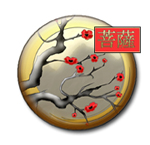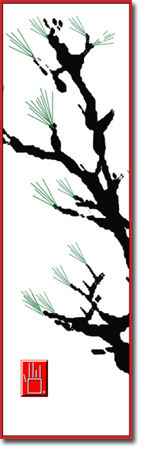On The Way: The Daily Zen Journal
The Mirror of Zen – Part 3
So Sahn (1520-1604)
There is only one thing, from the very beginning, infinitely bright and mysterious by nature.
It was never born, and it never dies. It cannot be described or given a name.
The appearance of all Buddhas and Patriarchs in this world can be likened to waves arising suddenly on a windless ocean.
Yet, dharma has many depths of meaning, and people have different capacities to receive it. Therefore, it is necessary to adopt different kinds of skillful means.
You may call it “mind,” or “Buddha,” or “sentient being.” Yet you should neither become attached to the names nor make distinctions or understanding. The essence of things is just-like-this. If even one thought appears, that is already a mistake.
The Zen meditation tradition descends from the three situations where the Buddha transmitted his insight wordlessly from mind to mind. The Sutra tradition derives from the occasions of the Buddha’s spoken teachings, delivered throughout his life. Therefore, it can be said that Zen is the Buddha’s mind, while the sutras are Buddha’s words.
If you become attached to words and speech, then even the Buddha’s silently raising a flower or Mahakashyapa’s wordless smile will be only another trace of the sutras. However, when you attain the truth within your own mind, even all the base chatter or elegant speech of the mundane world becomes nothing less than this same “special transmission outside the sutras.”
I would like to say just one thing:
Cutting off all thinking, forgetting all conditions
While sitting here with nothing to do–
Yet spring comes, and grass grows all by itself.
The Sutra teaching transmits only the dharma of One Mind, while Zen meditation transmits only the dharma of seeing one’s true nature.

The Buddha spoke like a bow, while the Patriarchs spoke like its string. He taught a no-hindrance Dharma that returns to the One Taste, sometimes called “substance.” When even the traces of this “one taste” disappear, the one mind taught by the Patriarchs appears clearly. For this reason, it is said that the hwa-du (koan) of “the pine tree in the garden” cannot be found even in the sutras of the Dragon Palace under the sea.
Therefore, students should understand the true teachings of the Buddha and distinguish clearly between the following two teachings: the fundamental ground of mind never changes while at the same time the form of your mind conforms to causes and conditions. Students of the buddha-dharma should perceive how the two gates of sudden enlightenment and gradual practice are both the beginning and the end of their practice. Then they must put aside their sutras and meditate with total one-pointedness—only this will clearly reveal their mind. They will surely gain by this! Such is the way that you jump out of the burning house and save your life.
So Sahn (1520-1604)
Excerpted from The Mirror of Zen: The Classic Guide to Buddhist Practice by Zen Master So Sahn





This is a unique gift as you can see in the introduction above. A Zen master from hundreds of years ago has essentialized what he sees as the heart of the sutras and Zen for us “practitioners in the future.” How many times have some of us attempted to read one of the sutras and just felt overwhelmed by the language, the images, and the searching for the essence of the teaching? You might have thought, “if I could just have someone bring out the main points here…” And here someone has done just that.
What you see above is the core of the text without the commentary and notes. Why this “nothing extra” approach? This will allow us to bring our own response to the teachings rather than add more commentary and notes to obscure things. Sometimes just that bare encounter is best. Let what comes up from us arise without any extra help from outside.
He has brought us the important corners; it is up to us to bring forth the last.
“Only one who bursts with
enthusiasm do I instruct;
only one who bubbles with
excitement do I enlighten.
If I hold up one corner
and you do not come back
to me with the other three,
I do not continue the lesson.”
Confucious
Gazing at mountains,
Elana, Scribe for Daily Zen